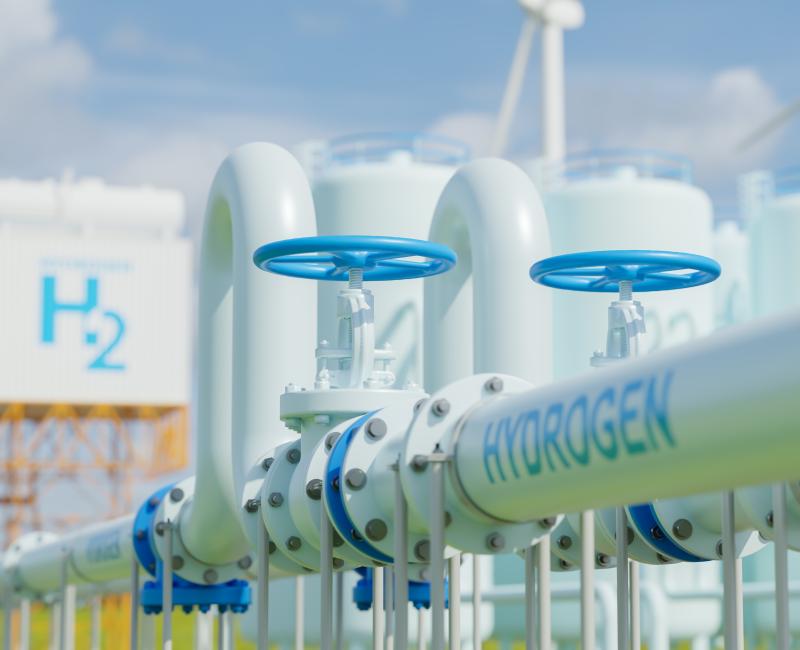ACER advises future improvements in the selection process of hydrogen PCIs/PMIs
What is it about?
ACER publishes today its Opinion on the draft regional lists of proposed hydrogen projects of common interest (PCIs) and projects of mutual interest (PMIs).
PCIs were introduced by the 2013 TEN-E Regulation. PCIs are infrastructure projects which benefit from accelerated permitting procedures and funding as they are identified as key contributors to achieving the EU’s energy and climate objectives, as set by the European Green Deal.
The TEN-E revision (2022) introduced the concept of PMIs. These are projects promoted by the EU in cooperation with third countries and are recognised as enabler of the energy transition (and therefore also benefit of accelerated permitting procedures).
Under the TEN-E Regulation, ACER:
-
Provides the Regional Groups with input during the assessment of candidate projects in coordination with National Regulatory Authorities (NRAs) and
-
assesses the draft regional lists and provides an Opinion on the consistent application of the criteria and the cost-benefit analysis (CBA) across regions.
What’s new?
This year, the Commission will adopt the first PCIs/PMIs list since the 2022 revision of the TEN-E Regulation. For the first time, the list includes hydrogen infrastructure as an eligible PCI category. The hydrogen sector holds considerable potential for shaping the future energy landscape. Its introduction as a PCIs/PMIs category has resulted in the submission of numerous hydrogen projects for PCI/PMI status.
In our Opinion, we delve into the 2023 PCIs/PMIs selection process, pointing out challenges faced within it and providing recommendations for the future selection rounds (happening in 2025).
What are the key findings?
ACER’s Opinion identifies three key priorities:
-
Identifying the needs: identifying hydrogen infrastructure needs poses its own specific complexities. As the hydrogen industry is in its early stages, assessing the future demand is difficult. Identification of needs would benefit from a more advanced methodology with more precise data inputs. ACER recommends Regional Groups dedicate more effort to tailor a robust process that anticipates the hydrogen sector’s growth.
-
Creating an effective selection methodology: developing a selection methodology that takes into consideration the unique uncertainties and specificities of the hydrogen demand and supply, needs to be a priority. ACER recommends synchronizing the finalisation of the Ten-Year Network Development Plan (TYNDP) process with a start of the PCIs/PMIs selection process and incorporate a hydrogen-specific CBA (see ACER Opinion on the draft ENTSOG CBA methodology of hydrogen infrastructure projects). ACER also recommends adopting an approach which considers various scenarios, aligned with the EU targets, to ensure a more comprehensive project assessment.
-
Ensuring greater transparency and data availability: ACER highlights the need for greater transparency in the application of the selection methodology for candidate projects. Sharing results transparently with Regional Group members promotes a shared understanding and enables informed decision-making. ACER observes also other challenges of this process, such as the unavailability of project-specific CBA results and the limited competence of National Regulatory Authorities in hydrogen, that prevents ACER to make a comprehensive assessment under the current TEN-E Regulation criteria.
ACER concludes in its Opinion that is unable to assess the consistent application of the foreseen selection criteria and the cost-benefit analysis of all candidate projects as outlined above.
What are the next steps?
ACER’s Opinion calls for improvements in the next PCIs/PMIs selection process (happening in 2025), namely:
-
more transparency;
-
more precise methodologies and coherency in their application; and
-
timely synchronization between the TYNDP process and the PCIs/PMIs selection process.
As ACER acknowledges these questions are adding complexity, it believes addressing them in the next PCIs/PMIs selection process is key to build a robust and future-proof hydrogen sector.
See also our Opinion on the proposed electricity PCIs/PMIs, published today.

